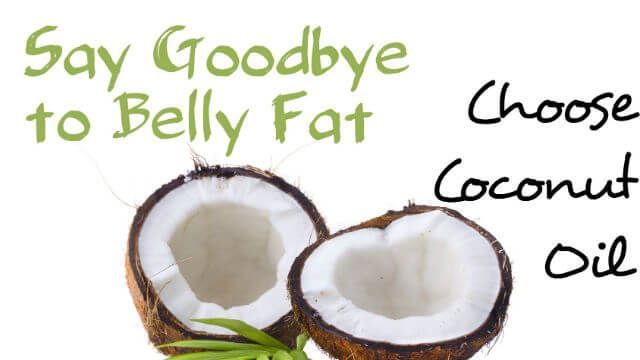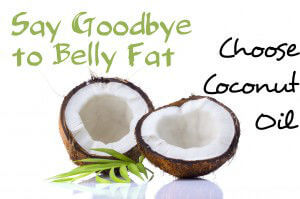
Perhaps you have done everything you feel is possible to shed those stubborn pounds. You know, the ones that gather around your midsection, making you feel bloated and uncomfortable.
The ones that keep you from buckling your pants comfortably, or from sporting that tankini you have always wanted. You may stay clear of junk, exercise with diligence and manage your stress well, but, to no avail… the pounds prevail.
The solution to those extra pounds may actually come as quite a surprise.
You are not alone in your struggle
Millions of people across America (not to mention worldwide) struggle with stubborn abdominal fat, which can be difficult to shed even when a healthy lifestyle is adopted. Not only is abdominal fat, also called visceral fat or ‘belly fat,’ unsightly, it can can lead to an increased risk of a number of health conditions.
Some of the risks associated with carrying excess fat around your middle are a greater susceptibility to type 2 diabetes and heart disease. Additionally, as this fat tends to coat vital organs, it can cause system-wide inflammation that can trigger an array of other chronic illnesses.
Have you banned fat from your diet?
One thing that many people in this situation erroneously try is to cut fat out of their diets in hopes of shedding the weight around their middles.
Fact: Americans have reduced their saturated fat consumption by 10 percent in the last 30 years, and obesity rates have doubled.
However, it may come as a surprise to learn that eating foods high in saturated fat, such as grass-fed meat, milk, free range eggs, butter, avocados, coconut, raw nuts and real cheese, are not necessarily the causes of obesity, high cholesterol and heart disease, as was originally thought.
Numerous studies have been conducted that have been unable to provide any conclusive evidence that consuming foods high in saturated fat leads to heart disease. One study that spanned the globe studied the diets of the Maasai tribe of Kenya, the Eskimos in the Arctic, and the tribe of the three atoll islands off the coast of New Zealand, and found their diets consisted of more than 66 percent saturated fat. And yet, they have the lowest risk of heart disease.
Fatty acids are vital to great health
Fatty acids are absolutely vital to the the proper functioning of the body. They allow the body to absorb nutrients, such as vitamins A, D, E and K, provide energy, support cellular function and are key to hair and skin health. Fats also work to absorb toxins to minimize their harmful effects on the body.
Saturated fats have received a particularly nasty reputation in the past several decades. However, as we explored in more detail in a previous article, the link between saturated fats and heart disease was based on faulty, skewed science, and subsequent studies have found quite the opposite: that a diet rich in natural saturated fats can actually lower heart disease risk, and even aid in weight loss.
These types of fats also help to support skin health, optimal sleep and immune system function. They satisfy the appetite and keep you feeling full, which equates to a reduction in between-meal cravings.
While the saturated fats found in grass-fed meat and dairy, as well as avocadoes, are very beneficial to health, the winner when it comes to reducing belly fat is raw, organic coconut oil.
The healthiest food on the planet
Considered one of the healthiest foods on the planet, coconut oil is extracted from the kernel or meat of mature coconuts. It also contains saturated fat – in fact, it is a whopping 90 percent saturated fat. Don’t let that scare you; although you may be convinced that saturated fat should not be touched with a 10-foot pole – coconut oil is healthy.
Although there have been over 60 years of negative public policy around healthy saturated fats like those found in coconut oil, research and review of cultures that have used coconut oil for thousands of years tell a different story – healthy saturated fat can be highly beneficial.
Research backs the power of coconut oil
Research demonstrates that the naturally occurring saturated fat found in coconut oil has some amazing therapeutic values, such as:
- Promoting heart health
- Boosting the immune system
- Providing immediate energy
- Promoting healthy skin
- Helping to regulate blood sugar
- Boosting metabolism
- Promoting weight loss
Coconut oil is vastly different from most other foods; it is comprised mainly of medium chain fatty acids ( MCFAs), while most other foods contain long chain fatty acids. Medium chain fatty acids are metabolized much differently than longer chain fats found in modern-day seed/vegetable oils, processed shortenings and almost all highly refined foods.
Long chain fatty acids (LCFAs) are very difficult for the body to break down and can put a tremendous strain on the pancreas, liver and digestive system. In addition, LCFAs are stored mainly as fat in the body, and are deposited in arteries as cholesterol. In contrast, medium chain fatty acids (MCFAs), like those found in coconut oil, are easy to break down and are sent directly to the liver to be used for energy – they are not stored as fat.
Understanding the thermogenic power of coconut oil
Coconut oil packs tremendous thermogenic power when compared calorie for calorie to long chain fats.
One study demonstrated how just 1 to 2 tablespoons of MCFAs per day can increase energy expenditure by 120 calories per day. Other studies confirm the findings and clearly demonstrate that when we replace the current fats we are eating (including those found in processed foods) with MCFAs, we burn more calories – hands down.
Another added bonus of consuming raw, organic coconut oil is that it tends to make us feel fuller for longer. Studies indicate that MCFAs help increase feelings of fullness and lead to a reduction in calorie intake when compared to the same amount of calories from other fats. When MCFAs are metabolized, ketone bodies are created in the liver – these have been shown to have a strong appetite reducing effect.
A 2009 study published in the journal Lipids consisted of testing the effects of either 2 tablespoons of coconut oil or 2 tablespoons of soybean on a group of 40 women over the span of 28 days.
Results showed that the group that ate the coconut oil had a decrease in belly fat, while the soybean oil group actually showed a slight increase in belly fat. Additionally, the group that ate the coconut oil showed increased HDL ‘good’ cholesterol levels, while the soybean oil group had decreased HDL cholesterol and increased LDL ‘ bad’ cholesterol.
The Journal of Nutrition published a study where researchers investigated all studies relative to MCFAs and weight management. The studies showed that diets rich in healthy fats, such as those found in coconut oil, prompted a boost in metabolism, increase in energy, decrease in food consumption, reduced body weight and lower body fat mass. The study authors highly recommend using oils that contain MCFAs, such as coconut oil, as a tool to drop extra belly fat, manage a healthy weight, and even as a way to treat obesity.
Yet another study that assessed body weight and fat storage relative to three different types of diets including a low-fat diet, high-fat diet with long chain fatty acids (LCFAs) and a high fat diet with MCFAs. In order to bring about weight gain, caloric intakes were adjusted for the diets.
At the end of the research period (which lasted 44 days), the low-fat diet group stored an average of 0.47 grams of fat per day, the LCFA group 0.48 grams per day and the MCFA group a mere 0.19 grams per day. Those in the MCFA group had a 60 percent reduction in body fat stored compared to the other diets.
Coconut is a low-calorie fat that packs a potent thermogenic punch
Coconut oil has earned the distinction of being the world’s only natural, low calorie fat – really – it actually contains fewer calories than any other fat. Combined with this, the fats in this tropical wonder are smaller than other fats and incredibly easy for the body to digest.
Because of this, they provide an immediate and long lasting energy surge like carbohydrates do, however, they don’t stick around in the blood like other fats. They do not add fat to existing fat cells or promote weight gain.
FACT: When you consume organic, raw coconut oil with other foods, the MCFAs help to burn more calories from the food for energy for up to twenty four hours.
The thermogenic properties of coconut oil raise body temperature, and people with sluggish thyroids report a rise in temperature of up to 2 degrees. If you suffer from extra weight due to a slow thyroid, coconut oil can help stimulate your metabolism, resulting in fat loss.
 Using coconut oil in your diet
Using coconut oil in your diet
Hands down, using raw organic coconut oil in your diet is an excellent way to melt stubborn fat around your midsection while reducing fat stores overall. To use coconut oil, purchase only the highest quality of raw organic oil and replace all of your other cooking oils with it.
Coconut oil is clearly a powerful fat loss tool, but the benefits do not stop there – the antibacterial, antifungal and antiviral properties of this tropical treasure make it the perfect household staple. Click here for more ways to incorporate this powerful oil into your healthy lifestyle regime.
-The Alternative Daily
Sources:
St-Onge, M.P., and Jones, P.J.H., 2002. Physiological effects of medium-chain triglycerides: potential agents in the prevention of obesity. Journal of Nutrition132(3):329-332.
Dulloo, A.G., et al. 1996. Twenty-four-hour energy expenditure and urinary catecholamines of humans consuming low-to-moderate amounts of medium-chain triglycerides: a dose-response study in a human respiratory chamber. Eur. J. Clin. Nutr. (50(3):152-8.
Fife, B., 2014. The Coconut Ketogenic Diet: Supercharge Your Metabolism, Revitalize Thyroid Function, and Lose Excess Weight, Piccadilly Books, Ltd., Colorado Springs, CO.
Crozier G. et al. 1987. Metabolic effects induced by long-term feeding of medium-chain triglyceridesd in the rat. Metabolism 36:807-814

